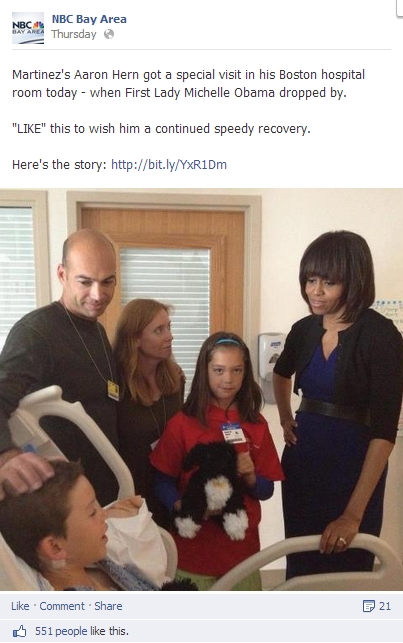Ethical Social Media Marketing After the Boston Bombings
An article by Augie Ray, director of social media for a Fortune 100 company, describes the ethics of social media marketing, and gives us several interesting examples from the Boston Marathon tragedy. In contrast to these companies that perhaps crossed an ethical line, recall El Pelon Taqueria, the restaurant that offered help and asked for nothing in return.
Calling it a "desperate attempt to trade on people's feelings," Ray described an NBC Facebook picture of a boy in a hospital bed. The post asks people to "'LIKE' this to wish him a continued speedy recovery." Ray points out that "liking" a post does nothing to help the boy recover.
In another example, Ray criticizes Ford for muddying a message with its products. According to Ray, "Ford's use of brand imagery not only reduced the sincerity of the message but demonstrated questionable ethics." For comparison, Ray presents Ford's actual post, at right, next to one without branding, at left. The difference is fairly obvious.
Individuals made mistakes as the tragedy was unfolding, too. Author Guy Kawasaki was criticized for continuing to post promotional tweets, as others were suspending theirs. Clearly, he didn't agree with the criticism. He responded, "Loving how people with less [sic] than 1,500 followers are telling me how to tweet."
Discussion Starters:
- How do you assess these three situations? Do you agree with the criticism of each?
- Augie Ray offers a sound suggestion for modifying the Ford post. Can you think of something similar for the NBC post? What might make this one more acceptable (read: more compassionate)?

